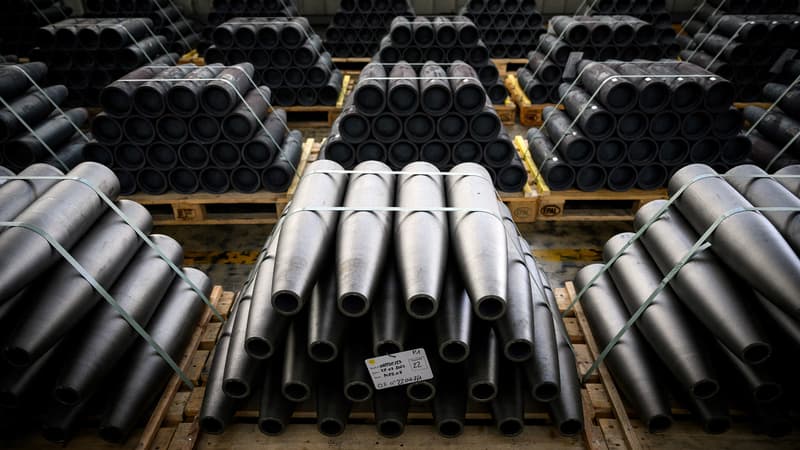The European Commission presented this Wednesday a financial instrument endowed with 500 million euros to reinforce the ammunition production capacity of the European Union in order to help Ukraine against the Russian offensive. The objective is to co-finance industrial investments to increase the production of the 15 companies that produce in eleven Member States.
According to Thierry Breton, these manufacturers “have no room to meet both the needs of Ukraine and our Member States.”
He hopes that this plan will be adopted by the Member States at the end of June. He expects that in a year, the production capacity will be one million ammunition per year. He is trying to continue supplying 155mm shells to the Ukrainian forces, the ones needed among other things for the Caesar guns. But also to replenish strategic stocks in European countries, some of which are close to running out.
In March, before the Defense Committee of the National Assembly, Sébastien Lecornu, Minister of the Armed Forces, recalled the orders placed, including 5,000 155mm ammunition, 200 medium-range anti-tank missiles (MMP) and around a hundred missiles Mistral.
Tensions in Europe, in the United States
Thierry Breton’s goal is ambitious. While waiting to achieve this, we will have to support Ukraine in the very short term and “continue donating our stocks”, warns the European commissioner. How long will member countries be able to meet kyiv’s needs?
According to Member State estimates, Ukraine uses between 60,000 and 210,000 shells per month, while Russia fires ten times as many. Since the appeal launched on February 9 by President Zelensky, EU countries have delivered nearly 40,000 shells and more than 1,000 missiles to Ukraine for its anti-aircraft and anti-tank defense weapons. But these data correspond only to the reimbursement requests submitted by the Member States. They do not reflect the reality of supplies covered by defense secrecy.
In February, at a meeting of NATO defense ministers, the Alliance’s secretary general, Jens Stoltenberg, already raised the issue.
Even the United States is worried about its inventories and its ability to produce more and faster. General Mark Milley, the US chief of staff, estimated in March that “the incredible level of ammunition consumption” is a “great lesson” from the conflict in Ukraine, which remains a “limited regional war.” “We still have work to ensure that our (…) stocks are ready,” the official said, referring to the possibility of other conflicts.
…and on the Russian side
This tension over ammunition stocks is also a problem for the Russian side, whose artillery fires between 600,000 and 1.8 million shells a month, ten times more than the Ukrainian one. The Russian General Staff gives priority to its regular army to the detriment of the Wagner group.
On Friday, Yevgeny Prigojine, head of the Russian paramilitary group, threatened to withdraw his fighters from the city of Bakhmout starting May 10 due to an estimated 70% lack of ammunition.
Source: BFM TV


